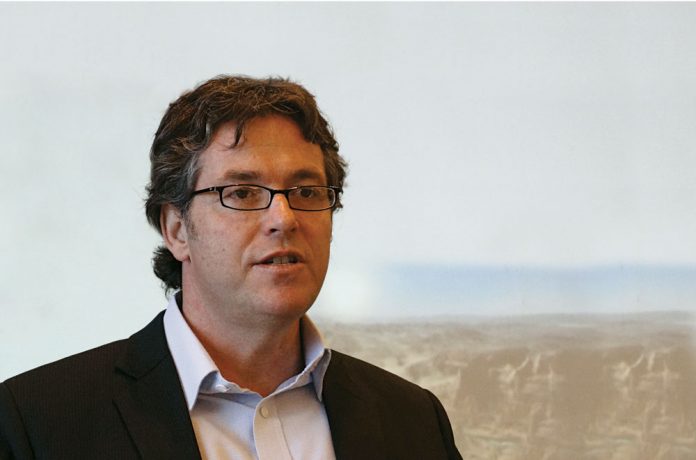Oded Distel, Head of New Tech Program, Ministry of Economy, and Director of Foreign Investments and Eco Systems, Invest in Israel
Israel excels in managing water use where there is very little to be found or during periods of shortage. What factors have driven Israel to become a leader in water management?
The slogan ‘necessity is the mother of invention’ is clearly the case in Israel with regards to water management. Lack of water has been an issue in Israel from the founding of the country and even before. To this day, water management in Israel is considered a national priority and receives attention at the highest political level. The need-based factors that have driven Israel to become a world-leader in water management are:
1. Domestic use: Israelis expect and demand continuous provision of water resources in the home and garden, based on a high modern standard of living, as well as parks and public green areas.
2. Agriculture: Since the founding of the country and before, Israel has lived by the motto ‘making the desert bloom’, while striving for food independence. The government has taken upon itself the goal of supplying water for most of Israel’s fresh produce.
3. Industry: Throughout its history, Israel has set out to build a strong and modern industry where a lack of water will not be an obstacle. The bottom line is that leadership in water management issues is a question of mindset and the deep understanding that water is a very precious resource that must be handled and managed with extra care.
Beyond managing water scarcity, in which other areas does Israel feel it can offer expertise?
Water management has to be based on several elements: a clear legal framework, holistic and synergetic structuring of the water sector, proven functional business models based on water prices, social consciousness around water conservation and adopting modern and efficient technologies in order to meet the national goals mentioned above. Israel is eager to share its know-how and experience including our mistakes in all of these areas with our partners all over the world.
Can you mention some new technologies or fields that Israeli water companies are moving into?
Israeli companies are active in every segment of the water sector, including drip and precision irrigation, water metering and monitoring, leak detection, water quality, water and wastewater treatment, desalination, water security and much more.
Because Israel is a leader in numerous tech sectors, one interesting aspect of the WaTech ecosystem is the way in which technologies from other sectors like communication or life sciences flow into the water arena. Those companies and entrepreneurs are actually bringing waves of new and fresh approaches to the water sector. Ideas such as analysing urban water loss based on satellite images of a city or based on big data anal ysis and anomaly detection are some examples for new and inspiring technologies that can fundamentally change the global water market. Other examples have to do with wastewater treatment and the ability to utilise the energy within the waste itself to help minimise or completely eliminate the need to add energy to the process. This can lead to clean water for irrigation and energy that was produced from organic elements.

Where are your biggest markets and are you looking to move into new ones?
Water is a global challenge. All countries in world are facing water issues, with different challenges and at varying levels. Israel’s experience is relevant to most of these markets and therefore the Israeli water industry operates globally. Our main markets are the US and Europe, but China, India, Brazil and many other countries are facing dramatic challenges in their local water markets such as growing populations, higher standards of living, urbanisation and climate change. All of these and other factors are pushing the water challenge higher and higher on the world agenda, and our solutions are helping to meet these challenges head on.
Do you tend to work with more developed or developing countries?
We work with everybody. The biggest task is to change the mindset of both political leaders and the general public with regards to water. I hear in many places around the world that “Water is God’s gift to mankind”. The subtext of this phrase is that water should be free for the end-user. This is a very problematic approach that leads directly to inefficient water systems, a conservative approach to innovation and poor service to the public. Our message about the fundamental changes that need to be fostered to secure a future with enough water for everyone is suitable for both developed and developing countries.
What are the advantages that the Israeli economy has in identifying, building and bringing to market new water technologies?
Israel sees great potential for its water industry to become one of its economic growth engines. The global challenges combined with Israel’s vast experience and achievements put the Israeli water industry in a very significant position.
How do you structure partnerships between the government, private sector and academia?
Israel NewTech is a national programme spearheaded by the Israeli Ministry of Economy and Industry. The programme brings together ten different ministries to combine efforts in order to realise the full potential of the Israeli water industry in the global market. The programme works very closely with the private sector and with academia.
The team at Israel NewTech serves as a national hub for our water eco-system, building relationships between Israeli tech, service companies and global clients and investors.
Which countries do your biggest competitors come from?
There are many countries with strong water industries including Holland, Singapore, France, Germany, China, UK and the US, to name just a few. Part of our role is to forge bold business models conducive to water efficiency and help foster the determination to take the necessary decisions to change outdated mindsets. Once we overcome those obstacles, the prospects for this industry are very positive.









